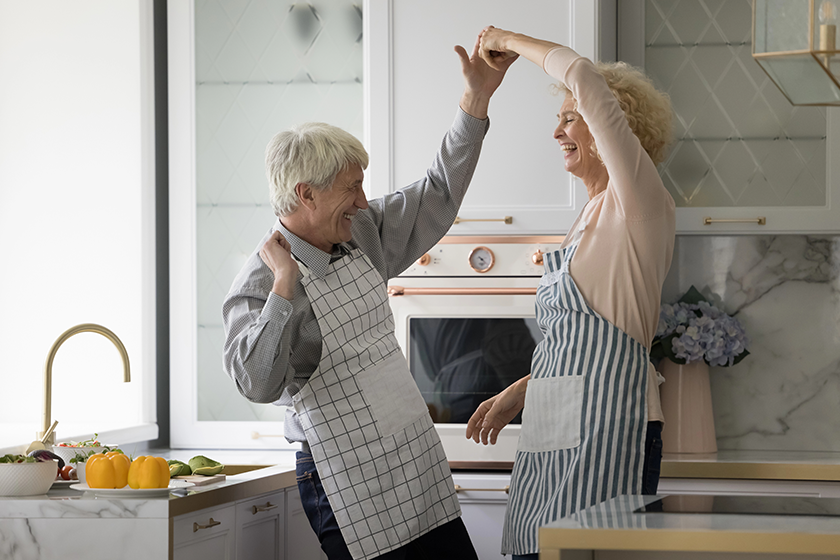Entering retirement marks an exciting new chapter in life. It offers the freedom to explore new interests, focus on personal well-being, and build deeper connections. However, it also presents the need to make informed decisions to ensure you enjoy a fulfilling and healthy lifestyle as you age. Preparing for an active retirement life means adopting habits that promote physical, mental, and emotional well-being, all contributing to a more vibrant retirement.
Choosing the Right Retirement Community
The first step toward an active retirement life often involves finding a suitable retirement community that aligns with your goals. You want a place that meets your basic needs and enhances your overall quality of life. A good retirement community offers an environment where you can maintain your independence while receiving support when necessary. Look for one that provides access to various senior living amenities, such as fitness centers, swimming pools, or walking trails, encouraging an active lifestyle.
The community should offer more than just comfortable living arrangements; it should also be a place where you feel connected to others. Social engagement is important, and many communities offer opportunities to meet like-minded people through clubs, classes, or group outings. These interactions can provide a sense of belonging and help combat feelings of isolation, which are common concerns in retirement.
Staying Physically Active
One of the pillars of an active retirement life is maintaining physical health. Staying active helps reduce the risk of chronic diseases, boosts your mood, and promotes better sleep. Many retirement communities offer a variety of activities and events tailored to encourage movement. Whether it is yoga, walking clubs, or dance classes, many ways exist to stay active and fit.
Regular exercise is also necessary for maintaining mobility and flexibility as you age. It can reduce the risk of falls and injuries, a concern for many people as they age. If you are unsure where to start, speak with your community’s wellness coordinator to find out what fitness programs are available, or consider hiring a personal trainer who specializes in working with older adults.
Health and Fitness
Incorporating good nutrition and regular health screenings into your routine is key to maintaining overall well-being in retirement. Your health and fitness plan should include more than just physical activity; it should also involve paying attention to your diet and preventive healthcare. Many retirement communities offer access to wellness programs that include nutritional counseling and fitness assessments, helping you stay on track with your health goals.
Mental and Emotional Wellness
While physical activity is valuable, so is mental and emotional wellness. An active retirement life goes beyond being physically fit; it also involves caring for your mind and emotional health. Engaging in lifelong learning, reading, or even new hobbies can stimulate your brain and prevent cognitive decline. Many retirement communities provide access to learning opportunities, such as lectures, computer courses, or art classes, which can keep your mind sharp and engaged.
Socializing with others is another important aspect of mental wellness. Connecting with friends and family, attending social events, or volunteering for community causes can help you feel engaged and purposeful. Many retirement communities understand the importance of social well-being and offer organized community activities and events designed to foster connection and community spirit. Whether you are joining a discussion group or going on an outing, these events provide many opportunities to stay socially active and mentally engaged.
Making the Most of Your Time
Retirement lets you shift your focus from work to things you genuinely enjoy. It is a time to revisit old hobbies or discover new interests. Consider taking up a craft, starting a garden, or learning a musical instrument. These activities keep you entertained and promote cognitive function and stress relief.
Many retirement communities offer residents opportunities to participate in arts and crafts, gardening clubs, or tech workshops. These activities can provide a sense of accomplishment and creativity, vital to mental well-being.
The Importance of Support Networks
As you adjust to retirement, building and maintaining strong support networks is important. While you may be physically able to do many things on your own, it helps to have a community of people around you who can help or be there for companionship. Whether it is a family member, a friend, or a fellow resident, having strong social support will contribute to your happiness and overall health.
Retirement communities often offer access to health professionals, social workers, and other specialists who can help you navigate the various aspects of retirement. This added layer of support can make all the difference in ensuring you remain happy, healthy, and independent.
Preparing for an active retirement life is about more than just choosing a place to live; it is about finding a community that supports your health, wellness, and social needs. A good retirement community offers a variety of retirement community amenities, including fitness programs, wellness resources, and social events that keep you engaged and active. By focusing on physical activity, mental wellness, and emotional support, you can ensure that your retirement years are filled with vitality, purpose, and fulfillment. Remember, an active retirement is about what you do and the community resources supporting you.







